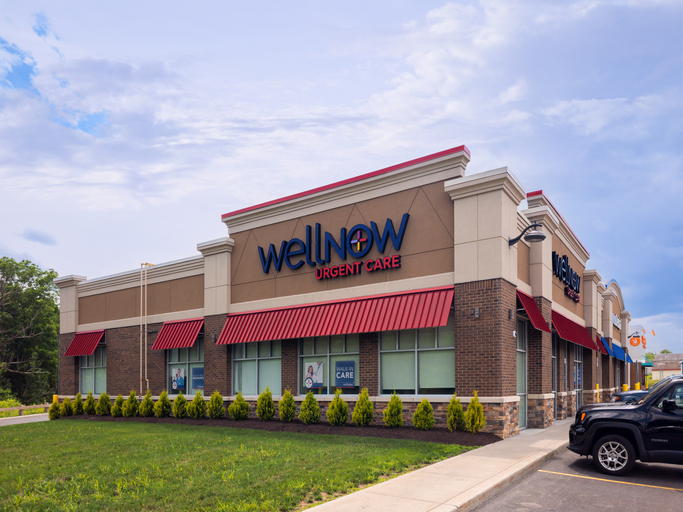The New Face of Community Healthcare: Managing Facilities Beyond Hospital Walls
Step into any suburban shopping center or neighborhood plaza, and you’ll notice a transformation taking place. Where retail stores once exclusively dominated, sleek urgent care clinics, modern dialysis centers, and specialized medical practices now anchor these spaces. This shift represents more than a real estate trend — it’s a fundamental reimagining of how and where healthcare services reach communities. For the facility managers behind these distributed care networks, this shift brings unique challenges that demand specialized expertise and strategic planning.
What is Medtail and Why is it Growing?
Medtail — a blend of “medical” and “retail” — describes the growing trend of healthcare services being delivered in retail settings such as shopping centers, strip malls, and standalone facilities. This model makes healthcare more accessible and convenient, offering services like urgent care, dental and vision clinics, cosmetic and wellness treatments, and specialized care like dialysis in high-traffic retail environments.
Major retailers and healthcare providers have embraced this model, reflecting consumer demand for quick, affordable, and convenient healthcare options. For facility managers overseeing these locations, understanding the specific maintenance requirements is essential for operational success.
How Clinic Healthcare Facilities Management Differs from Traditional Institutions
While sharing some common requirements with larger healthcare institutions, clinics and medtail establishments have distinctly different facility management needs:
- Scale and retrofitting challenges: These facilities often require retrofitting retail spaces for medical use, adding specialized plumbing, HVAC modifications, and privacy features.
- Regulatory balance: Must meet healthcare standards with particular emphasis on privacy, ADA compliance, and sanitation within a retail context.
- Mechanical systems: Typically feature retail-grade infrastructure that needs strategic upgrades to meet medical requirements.
- Shared resources: Often share utilities and infrastructure with other retail tenants, complicating maintenance responsibilities and cost allocation.
- Patient flow focus: Designed for quick service delivery, accessibility, and retail-like experience rather than extended patient stays.
- Cost structure: Facility costs represent a higher percentage of overall operating expenses, making efficient maintenance crucial for profitability.
Key Facility Management Concerns for Clinics and Medtail Establishments
1. Infection Control and Cleanliness
Unlike standard retail spaces, healthcare facilities — even smaller ones — must maintain rigorous cleanliness standards:
- Regular HVAC maintenance and filter changes to prevent the spread of airborne pathogens
- Enhanced cleaning protocols for clinical areas
- Proper waste management systems for medical materials
- Strategically placed hand hygiene stations throughout the facility
2. Preventive Maintenance of Critical Systems
Small clinics and medtail establishments cannot afford system failures that interrupt patient care:
- Regular inspections of HVAC, plumbing, and electrical systems
- Specialized maintenance for medical equipment such as imaging devices and sterilization equipment
- Backup power solutions for critical systems
- Water quality management, particularly important for facilities like dialysis centers
3. Regulatory Compliance
Even smaller healthcare facilities must meet stringent compliance standards:
- Adherence to local, state, and federal regulations (OSHA, ADA)
- Detailed documentation of maintenance activities
- Regular inspections and certifications
- Staying current with evolving healthcare codes and standards
4. Patient Comfort and Experience
The patient experience in smaller healthcare settings is a crucial differentiator:
- Consistent climate control throughout patient areas
- Proper lighting in examination and treatment spaces
- Non-slip flooring and accessibility features
- Comfortable waiting areas that balance privacy and efficiency
5. Equipment Uptime and Operational Continuity
Downtime in a small clinic can mean turning patients away:
- Immediate response protocols for equipment failures
- Preventive maintenance schedules for clinical equipment
- Coordination of maintenance activities during non-peak hours
6. Cost and Performance Visibility
Many medtail operators manage multiple locations, requiring:
- Centralized and cost-effective work order management
- Performance tracking across various sites
- Budget transparency and cost control measures
- Vendor management and performance metrics
7. Seasonal and Environmental Challenges
Retail environments present unique seasonal considerations:
- Increased HVAC demands during extreme weather
- Humidity control to prevent mold growth
- Seasonal traffic pattern adjustments
The Benefits of Consolidated Healthcare Facilities Management
As you can see, it’s a lot to keep track of and manage. However, consolidating healthcare facilities management for multiple clinics or medtail locations offers substantial advantages:
- Comprehensive asset management: Building detailed equipment lists for all locations provides visibility into asset condition, age, and performance.
- Proactive capital expenditure planning: Identifying equipment for replacement before failure prevents costly emergency situations.
- Strategic vendor consolidation: Working with a single facilities management partner streamlines operations and reduces costs.
- Enhanced patient experience: Well-maintained facilities with functioning HVAC, proper lighting, and clean environments create positive patient impressions.
- Operational efficiency: When maintenance is handled through a single provider, clinic staff can focus on patient care rather than managing building issues.
- Improved data management: A centralized work order system provides a single source of truth for facility data across the clinic network.
Partner with a Healthcare Facilities Management Expert
CLS Facility Services has been supporting healthcare facilities nationwide for more than 50 years. With a highly experienced team, online asset management tools, a national network of proven vendors, and a strategic partnership approach that prioritizes service and communication, we’re uniquely positioned to address the specialized needs of clinics and medtail establishments. Our comprehensive approach covers all critical facility systems:
- HVAC/R maintenance and service
- Plumbing systems
- Electrical and lighting
- General repairs and building maintenance
- Fire and life safety systems
By transforming your approach to healthcare facilities management from reactive to proactive, you can reduce costs, improve operations, and create better experiences for both staff and patients.
Connect with us today to learn more about how we can help your healthcare facilities thrive.



